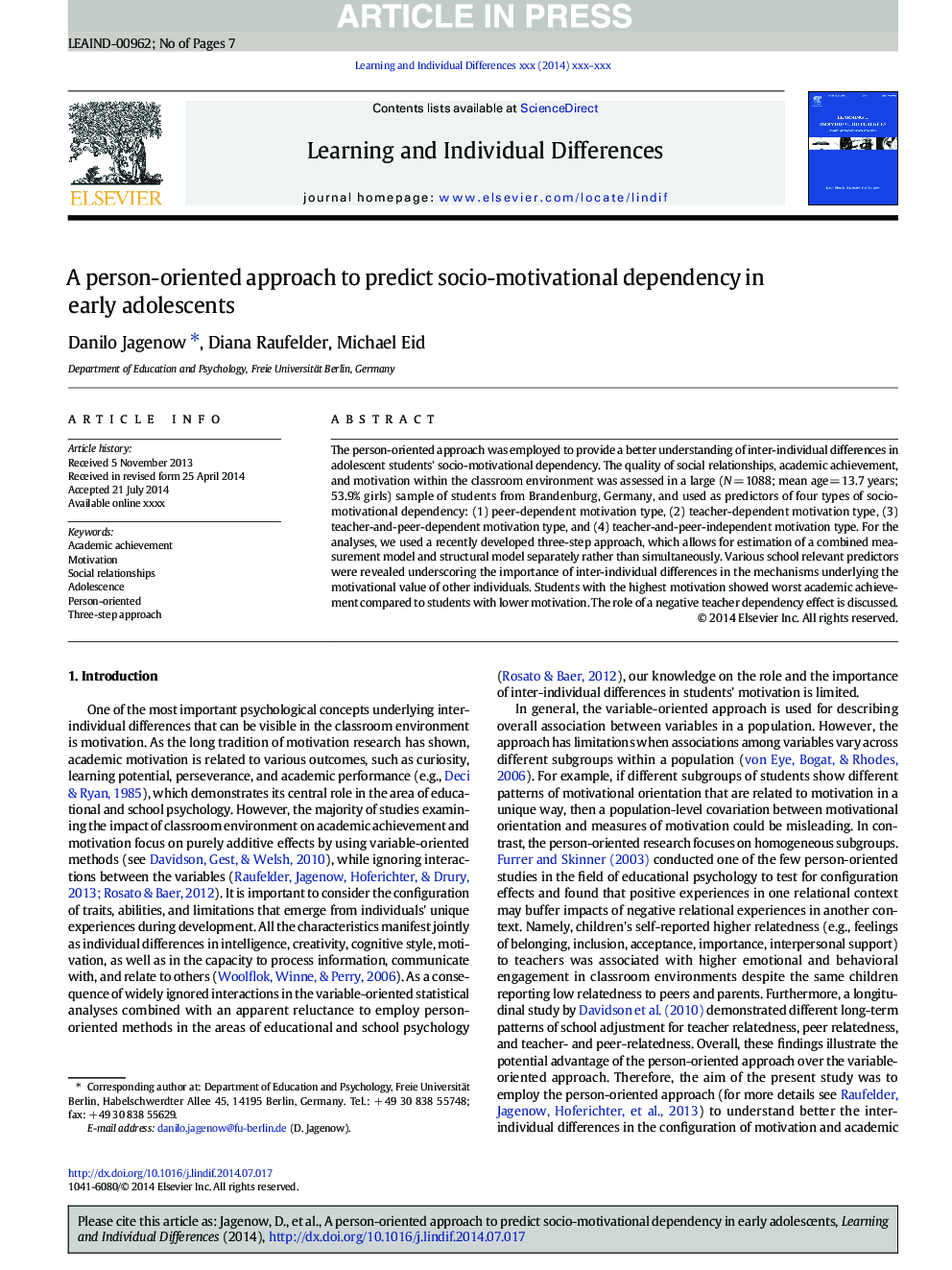| Article ID | Journal | Published Year | Pages | File Type |
|---|---|---|---|---|
| 6845046 | Learning and Individual Differences | 2014 | 7 Pages |
Abstract
The person-oriented approach was employed to provide a better understanding of inter-individual differences in adolescent students' socio-motivational dependency. The quality of social relationships, academic achievement, and motivation within the classroom environment was assessed in a large (N = 1088; mean age = 13.7 years; 53.9% girls) sample of students from Brandenburg, Germany, and used as predictors of four types of socio-motivational dependency: (1) peer-dependent motivation type, (2) teacher-dependent motivation type, (3) teacher-and-peer-dependent motivation type, and (4) teacher-and-peer-independent motivation type. For the analyses, we used a recently developed three-step approach, which allows for estimation of a combined measurement model and structural model separately rather than simultaneously. Various school relevant predictors were revealed underscoring the importance of inter-individual differences in the mechanisms underlying the motivational value of other individuals. Students with the highest motivation showed worst academic achievement compared to students with lower motivation. The role of a negative teacher dependency effect is discussed.
Related Topics
Social Sciences and Humanities
Psychology
Developmental and Educational Psychology
Authors
Danilo Jagenow, Diana Raufelder, Michael Eid,
